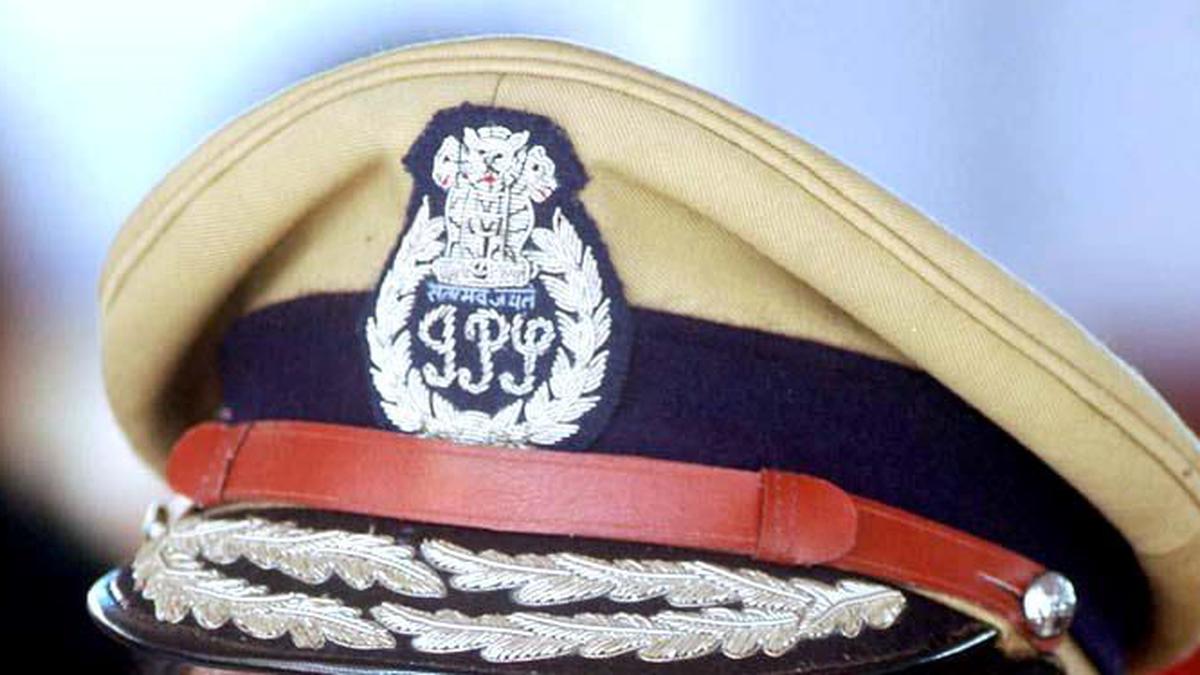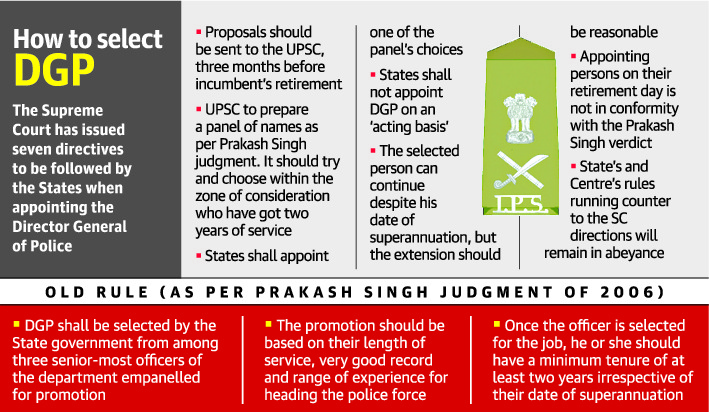



The Union Government has introduced a "single-window system" for appointing Directors-General of Police (DGPs), following Supreme Court directives and guidelines from the Union Public Service Commission (UPSC). The process involves a merit-based, transparent process, minimum tenure of two years, consultation with the UPSC, and a Police Establishment Board.

Copyright infringement not intended
Picture Courtesy: THE HINDU
The Union Government has notified a "single-window system" for appointing Directors-General of Police (DGPs).
The Director General of Police (DGPs) are the highest-ranking police officers in states and union territories.
The appointment process follows a structured process governed by the Supreme Court's directives in the Prakash Singh vs Union of India (2006) case and guidelines issued by the Union Public Service Commission (UPSC), to ensure transparency, meritocracy, and minimizing political interference.
Supreme Court Directives in Prakash Singh Case (2006)
The Appointment Process
The UPSC guidelines (2009, amended in 2023) and a recently introduced "Single Window System" by the Union Government, involves the following steps:

|
For Mains: Police Reforms l New provisions for police officers |
Source: THE HINDU
|
PRACTICE QUESTION Q. Despite judicial interventions, political interference in police administration remains a persistent issue. Critically examine the reasons behind this and propose solutions. 150 words |
The DGP is the highest-ranking police officer in a state/UT, responsible for overall control, supervision, and direction of the police force and maintaining law and order.
The UPSC prepares a panel of three eligible officers from the list sent by the state government, from which the state must choose its DGP.
As per the 2023 amended UPSC guidelines, officers must have at least 25 years of service.




© 2026 iasgyan. All right reserved